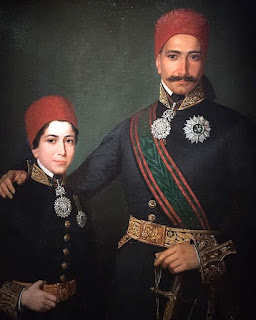(excerpt from the book ‘The Greek community in Mozambique’)
Apart from the Greeks who settled in Lourenço Marques or Beira in the
19th century, there were others who continued towards the province of
Inhambane. They boarded on a ship in Lourenço Marques and after nearly
40 hours they reached the port of Inhambane. In Inhambane, they got on
the train either for Jangamo, a small town at a distance of 30 km
or Mocumbi. The arduous journey did not end in Inhambane since many
Greeks had to ride horses or to walk for several kilometers through the
jungle to arrive at their settlement places. Those pioneer farmers lived
in round huts, 4-5 metres in diameter, covered with leaves and
branches. Each hut consisted of one or two rooms, with a bed and a small
table inside it.
Greeks from Asia Minor and the islands of Aegean
mainly settled in these areas and leased land by the Portuguese
government. They engaged in agricultural production, especially in the
cultivation of sugar cane. Some of the pioneers were: Michael Lygeros
from Plomari, Michael Nicolaou from Cyprus, Dimitris Kalliontzis from
Smyrna, Aristides and Apostolos Angelidis from Kırkağaç (Asia Minor),
John Vlassopoulos from Ayvalık (Asia Minor), Dimitris Pagonis from
Chios, Panagiotis Avgoustatos from Kefalonia and George Spellas from
Spetses.











